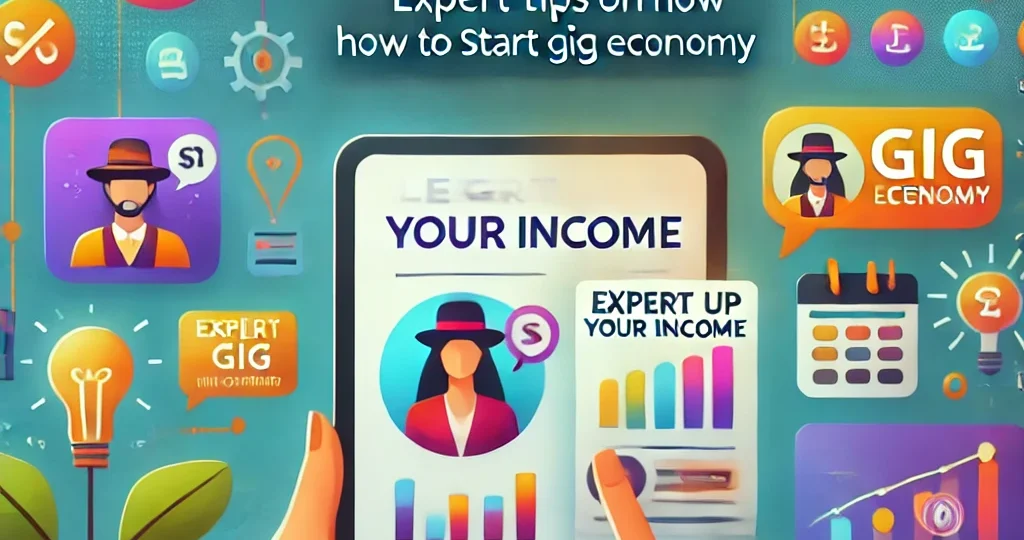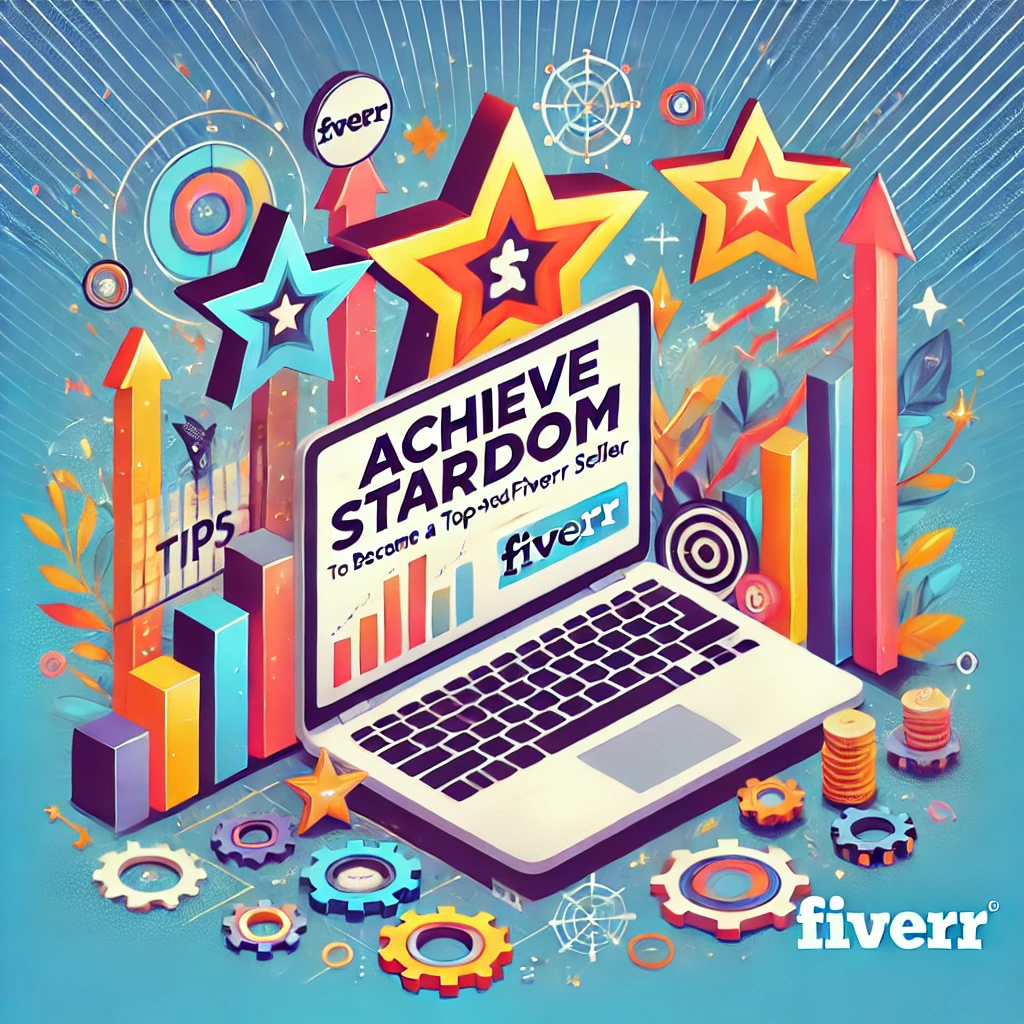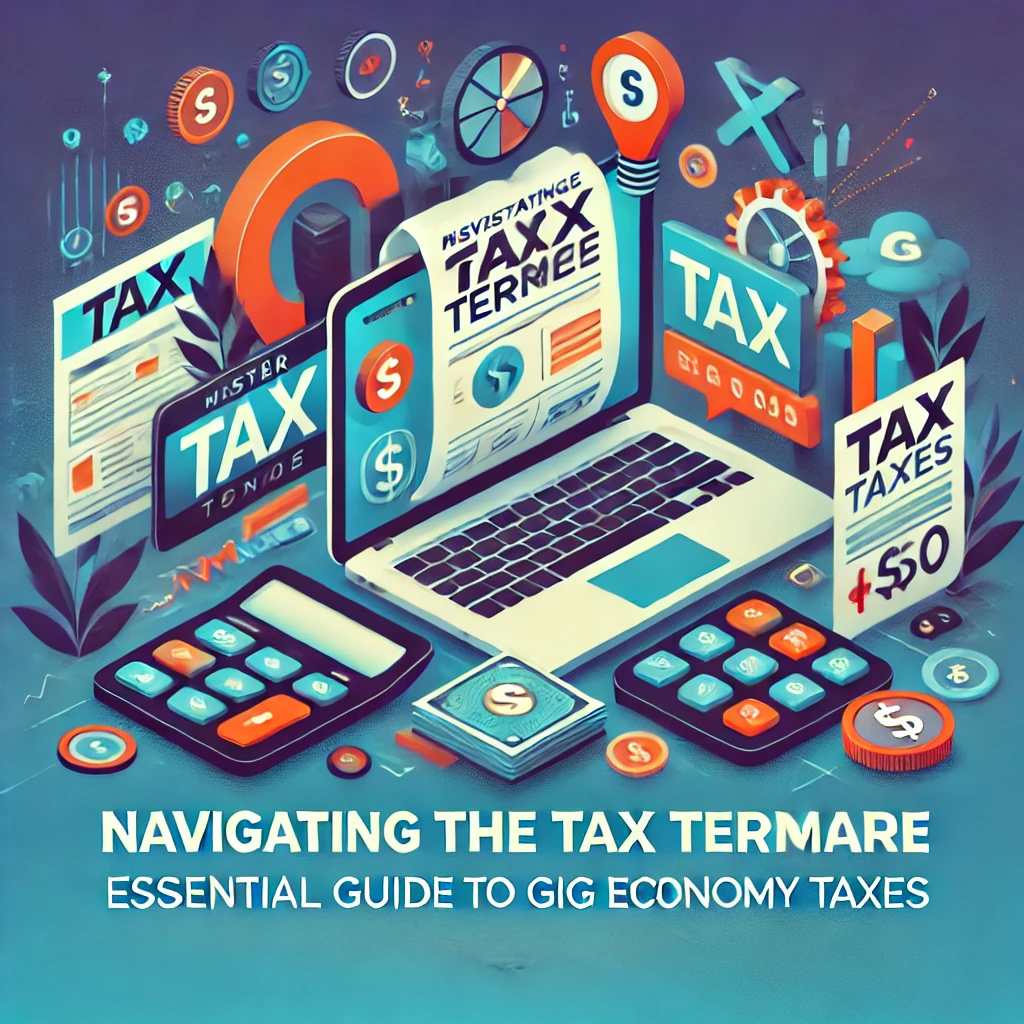Level Up Your Income: Expert Tips on How to Start Gig Economy
September 3, 2024 | by Jean

Mastering the Gig Economy
Understanding the dynamics of the gig economy is essential for anyone looking to explore new income opportunities. This section provides an insight into the concept of the gig economy and the advantages it offers to individuals.
Introduction to the Gig Economy
The gig economy, also known as the freelance or sharing economy, is a burgeoning sector characterized by short-term and flexible work arrangements. In this landscape, individuals, referred to as gig workers, take on temporary jobs, projects, or tasks, often facilitated by digital platforms. This paradigm shift from traditional employment models allows for increased autonomy and flexibility in how work is performed and managed.
By participating in the gig economy, individuals have the freedom to choose the type of work they undertake, the clients they engage with, and the hours they work. This flexibility appeals to a wide range of individuals, from freelancers and remote workers to students and stay-at-home parents looking to supplement their income. The gig economy opens doors to diverse opportunities across various industries, providing a platform for individuals to leverage their skills and expertise in a dynamic and evolving landscape.
Benefits of Joining the Gig Economy
Embracing the gig economy presents a host of benefits for aspiring freelancers and gig workers. One significant advantage is the ability to diversify income streams and explore new avenues for professional development. The gig economy offers a level playing field where individuals can market their skills and services to a global audience, transcending geographical limitations.
Moreover, gig workers have the opportunity to set their rates, negotiate terms, and establish their brand in the market. This autonomy empowers individuals to take control of their professional journey and build a portfolio that aligns with their strengths and passions. Additionally, the gig economy fosters a culture of continuous learning and adaptability, encouraging individuals to stay abreast of industry trends and emerging technologies.
By tapping into the gig economy, individuals can unlock a world of possibilities, from flexible work arrangements and supplemental income to personal growth and entrepreneurial pursuits. Whether embarking on a side hustle, pursuing full-time gig work, or seeking remote opportunities, mastering the gig economy offers a pathway to financial independence and professional fulfillment.
Getting Started
Embarking on a journey in the gig economy requires thoughtful planning and preparation. Before diving into the plethora of opportunities available, individuals should focus on three key aspects: assessing their skills and interests, researching gig opportunities, and setting realistic goals.
Assessing Your Skills and Interests
To excel in the gig economy, it’s essential to evaluate your strengths and areas of interest. Consider the skills you possess, such as writing, graphic design, programming, or administrative tasks. Reflect on your passions and hobbies as they could potentially translate into profitable gig opportunities. Identifying your unique talents will not only set you apart in the competitive gig market but also ensure that you enjoy the work you pursue.
Researching Gig Opportunities
Once you have a clear understanding of your skills and interests, the next step is to explore the vast landscape of gig opportunities. Research popular gig economy platforms such as freelancing websites, microtask platforms, and on-demand service apps to identify where your skills align with market demands. Investigate the types of gigs available, ranging from writing and graphic design to virtual assistance and data entry. Understanding the different avenues for gig work will help you pinpoint where you can thrive and maximize your earning potential.
Setting Realistic Goals
Setting realistic goals is paramount to success in the gig economy. Define clear objectives that are specific, measurable, achievable, relevant, and time-bound (SMART). Determine how much time you can dedicate to gig work each week and establish income targets based on your financial needs and aspirations. By setting achievable goals, you can track your progress, stay motivated, and adapt your strategies as needed to ensure steady growth in your gig endeavors.
By taking the time to assess your skills, research gig opportunities, and set realistic goals, you lay a solid foundation for a fruitful journey in the gig economy. Remember that flexibility, adaptability, and a proactive approach are key ingredients for thriving in this dynamic and fast-paced digital marketplace. Explore our article on in-demand gig economy skills for further insights on honing your talents for success in the gig economy.
Platforms and Opportunities
In the vast landscape of the gig economy, there are numerous platforms and opportunities available for individuals looking to embark on a freelancing journey. Understanding the popular gig economy platforms and exploring different types of gigs can help you kickstart your online career.
Popular Gig Economy Platforms
When venturing into the gig economy, leveraging established platforms can provide you with a steady stream of gig opportunities and a platform to showcase your skills. Some of the popular gig economy platforms that cater to a wide range of freelancers include:
| Platform | Description |
|---|---|
| Upwork | A leading platform for freelancers offering a variety of project categories from writing and design to IT and marketing. |
| Fiverr | Known for its gig-based services, Fiverr allows freelancers to create ‘gigs’ for specific services they offer, catering to a global client base. |
| TaskRabbit | Specializes in local tasks and errands, allowing freelancers to offer services such as handyman work, furniture assembly, and pet care. |
| Freelancer | Connects freelancers with clients seeking services in areas like programming, writing, and design through competitive bidding. |
Exploring these platforms and understanding their unique features can help you determine which ones align best with your skills and career goals. For more insights on creating a robust profile on these platforms, check out our article on creating an Upwork profile and learn how to become a top-rated seller on Fiverr.
Exploring Different Types of Gigs
The gig economy offers a diverse array of opportunities across various industries and skill sets. By exploring different types of gigs, you can identify areas where your expertise shines and find gigs that align with your passions and interests. Some common types of gigs in the gig economy include:
- Content Creation: Writing articles, blog posts, social media content, and copywriting for businesses.
- Graphic Design: Creating logos, branding materials, and visual assets for marketing campaigns.
- Virtual Assistance: Providing administrative support, scheduling, and customer service to clients.
- Digital Marketing: Managing social media accounts, email marketing, SEO, and online advertising campaigns.
- Web Development: Designing and developing websites, e-commerce platforms, and web applications.
By diversifying your gig portfolio and exploring different types of gigs, you can expand your skill set, broaden your client base, and increase your earning potential. For tips on managing multiple gig economy jobs effectively, refer to our article on juggling multiple gig economy jobs for insights on maintaining a balanced workload.
In the ever-evolving gig economy, adapting to the changing landscape and exploring diverse opportunities can be key to your success as a freelancer. Stay informed about emerging trends, continuously upskill yourself in in-demand gig economy skills, and remain proactive in seeking out new gig opportunities to thrive in this dynamic online marketplace.
Building Your Profile
In the realm of the gig economy, establishing a strong online presence is paramount to attracting potential clients and securing gigs. Crafting a robust profile that effectively highlights your skills and experience is key to standing out in a competitive market.
Crafting a Strong Profile
When creating your profile on gig platforms, it’s essential to provide a comprehensive overview of who you are and what you bring to the table. A strong profile should include:
- Professional Headline: Craft a concise and descriptive headline that showcases your expertise and the services you offer.
- Profile Picture: Choose a professional and engaging profile picture to make a positive first impression on potential clients.
- Bio or About Me Section: Use this space to introduce yourself, highlight your skills and experiences, and communicate what sets you apart from others.
- Portfolio or Samples: Include samples of your work, portfolio pieces, or links to relevant projects to demonstrate your capabilities.
- Skills and Expertise: Clearly list your skills and areas of expertise to help potential clients understand what services you can provide.
- Client Testimonials: If available, showcase testimonials from previous clients to build credibility and trust.
Ensuring that your profile is polished, informative, and visually appealing will greatly increase your chances of attracting clients who are seeking your specific skills and services.
Showcasing Your Skills and Experience
One of the most critical components of your gig economy profile is showcasing your skills and experience in a compelling manner. Here are some tips to effectively present your expertise:
- Highlight Relevant Experience: Emphasize previous work experience, projects, or achievements that align with the services you offer.
- Use Keywords: Incorporate relevant keywords in your profile description to increase visibility and attract clients searching for specific skills.
- Quantify Achievements: Where possible, include measurable results or achievements to demonstrate the impact of your work.
- Update Regularly: Keep your profile up-to-date with your latest skills, projects, and accomplishments to reflect your current expertise.
By effectively showcasing your skills and experience in your gig economy profile, you can position yourself as a credible and desirable candidate for potential gigs. Remember to leverage platforms that cater to your skill set and audience, and continuously refine your profile based on feedback and industry trends.
Thriving in the Gig Economy
To succeed in the dynamic landscape of the gig economy, mastering essential skills such as time management and organization is crucial. Additionally, establishing a solid reputation within the gig community can significantly impact your success and opportunities for growth.
Time Management and Organization
Effective time management is the cornerstone of success in the gig economy. Balancing multiple projects, deadlines, and clients requires a high level of organization and prioritization. Utilizing digital tools such as calendars, task management apps, and productivity software can help you stay on top of your workload and maximize efficiency.
By setting clear goals, creating schedules, and allocating dedicated time blocks for different tasks, you can increase your productivity and ensure that you deliver high-quality work consistently. Time management skills not only enhance your performance but also contribute to your overall reputation as a reliable and professional gig worker.
Establishing a Solid Reputation
Building a strong reputation in the gig economy is essential for attracting new clients and securing repeat business. Consistently delivering high-quality work, meeting deadlines, and maintaining effective communication with clients are key factors in establishing credibility and trust.
To enhance your reputation, actively seek feedback from clients and incorporate constructive criticism to improve your skills and service quality. Positive reviews and testimonials from satisfied clients can significantly boost your credibility and attract new opportunities.
Networking within the gig community, participating in industry forums, and showcasing your expertise through online portfolios and social media can also help you establish a solid reputation and become a sought-after gig worker in your field.
By prioritizing time management and organizational skills while focusing on building a positive reputation in the gig economy, you can position yourself for long-term success and sustainable growth in your freelance career. For more insights on thriving in the gig economy, consider exploring our article on full-time gig work for valuable tips and strategies.
Growth and Sustainability
To thrive in the dynamic landscape of the gig economy, it’s essential to focus on growth and sustainability. Diversifying your gig portfolio and scaling your gig business are key strategies to ensure long-term success.
Diversifying Your Gig Portfolio
Diversification is a fundamental principle in the gig economy that can help mitigate risk and maximize opportunities. By diversifying your gig portfolio, you can tap into various income streams and broaden your skillset. This not only enhances your marketability but also allows you to adapt to changing trends and demands within the gig economy.
| Gig Category | Percentage of Portfolio | Average Earnings |
|---|---|---|
| Freelance Writing | 30% | $40/hour |
| Graphic Design | 20% | $50/hour |
| Virtual Assistant | 25% | $30/hour |
| Social Media Management | 15% | $35/hour |
| Online Tutoring | 10% | $25/hour |
To effectively diversify your gig portfolio, consider exploring different types of gigs that align with your skills and interests. This could range from freelance writing and graphic design to virtual assistance and social media management. By expanding your range of services, you can cater to a broader client base and boost your income potential. For more insights on diversifying your income through microtasks, check out our article on diversify microtask income.
Scaling Your Gig Business
Scaling your gig business involves strategically growing your operations to increase efficiency and profitability. As you gain experience and establish a solid reputation in the gig economy, scaling allows you to take on larger projects, expand your client base, and potentially command higher rates for your services. This can lead to a more sustainable and lucrative gig business in the long run.
To scale your gig business effectively, focus on leveraging technology to streamline your workflow, automate repetitive tasks, and enhance client communication. Invest in tools and software that can help you manage your projects more efficiently and deliver high-quality results in a timely manner. Additionally, consider optimizing your pricing structure, marketing your services effectively, and networking within your industry to attract new opportunities and collaborations.
By diversifying your gig portfolio and scaling your gig business thoughtfully, you can position yourself for continued growth and success in the ever-evolving gig economy. Stay adaptable, proactive, and open to new challenges to sustain your momentum and achieve your financial goals.
RELATED POSTS
View all


